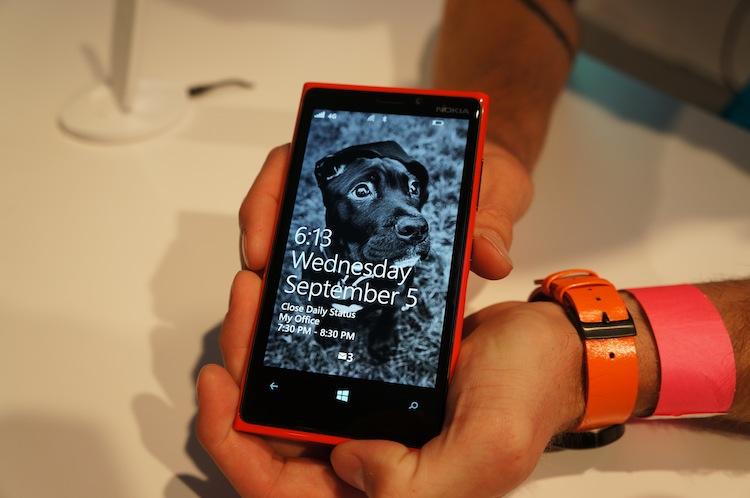
When the iPhone originally launched in 2007, AT&T was the sole carrier that introduced the game-changing smartphone to the world. AT&T inked a deal with Apple that would keep any competitors from carrying the iPhone for several years to come.
Back then, exclusive deals like those weren't all that uncommon. (They still aren't today either, unfortunately.) But AT&T's exclusivity with the iPhone was different in many ways than any deals before or after it. It actually worked – better than anyone could have expected. On no other carrier in the States could you get an iPhone, or anything even like it for at least two years to come. Apple and AT&T made huge profits and tens of thousands of people switched to Ol' Blue to get a taste of the smartphone of the future.
Since then, however, Apple has adopted a new tactic. Piquing interests worked to begin with, but now that it was certain the market wanted their product, Apple opened the flood gates and has since began offering the iPhone on three out of the four major wireless providers in the U.S., several regional carriers and even prepaid carriers. This is almost a complete reverse from how they originally launched the iPhone.
No less, AT&T and other manufacturers are still trying to replicate the success of the original iPhone, iPhone 3G and iPhone 3GS. With devices like the Nokia Lumia 900, AT&T was the exclusive carrier to offer Nokia's flagship smartphone in the States. It flopped and Nokia is now between a rock and a hard place.
Just yesterday, we learned the highly-anticipated successor to the Lumia 900, the Lumia 920, will also be an AT&T exclusive. Evan explained how other wireless providers must be unhinged for not carrying (or wanting to carry) the Lumia 920. But make no mistake, this was a deal negotiated between Nokia and AT&T, possibly with a little help from Microsoft. And I'm afraid the Lumia 920 will now face the same fate as the Lumia before it, regardless of how much hype it's drumming up.
There's a reason carrier exclusive deals no longer work with just any ol' device. The iPhone was such a success as an exclusivity because it was a unique product at the time. There weren't any real competitors to the iPhone for at least two years after its launch. If you wanted a smartphone of its caliber, you had to go to AT&T. Now smartphones are a dime a dozen, they're everywhere. It no longer matters if your carrier of choice doesn't carry the exact smartphone you want for two reasons: either they will at some point in the not too distant future or there is a very similar alternative to be had.
Say you're on Verizon and you want the HTC One X. That clearly isn't going to happen as HTC did not create a One device for Verizon and AT&T devices are incompatible with Big Red's CDMA network. So you can't just buy the phone sans contract and pop a Verizon LTE SIM in the phone. However, there are ample like-minded smartphones in the same class as the One X on Verizon, such as the upcoming DROID RAZR HD, DROID RAZR MAXX HD or the existing Samsung Galaxy S III.
In the last year, there has been only one exclusive deal I can recall that worked out … for the most part. The Samsung Galaxy Note was also an AT&T exclusive device, yet it was met with a decent amount of success. Why, exactly? Because it's different, an extreme take on the modern smartphone. If you wanted a 5.3-inch smartphone on Verizon, Sprint or T-Mobile (excluding those willing to hack and mod a bit), you were simply out of luck. There were no alternatives to Samsung's alluring phablet.
I fully believe Samsung understood that and wanted to mimic Apple's success on a smaller scale while also probing the market. (The Note was always a niche device, even if it was surprisingly popular worldwide.) It signed the exclusive deal with AT&T and it actually worked out in the end. Verizon customers were up in arms over not getting the Galaxy Note.
Rather than re-signing a deal with AT&T and throwing away potential customers, however, Samsung is aiming to get the Galaxy Note II in as many hands as possible. Similar to how Samsung launched the Galaxy S III, the Note II will launch on five U.S. carriers by mid-November: AT&T, Sprint, Verizon, T-Mobile and U.S. Cellular.
It should come as no surprise that Apple and Samsung are marking record sales and revenues. The two are both opening up to any and all carriers that will offer their smartphones. Meanwhile, AT&T and Nokia are living in some fantasy land where carrier exclusives still amount to something.
AT&T and Nokia, this isn't 2007. The Lumia 920 is a fantastic device. But it isn't different enough to make people switch carriers or get too terribly upset if it doesn't make it to their carrier. By now, people know they can wait a few months and something better will come along. Nokia, move past this exclusive nonsense and stop cutting your market and possible customers by fractions.
How do you feel about carrier exclusive deals, readers? Do they make sense to you? Or are they an outdated tactic that no longer works as intended? What do you do when the phone you want is exclusive to a carrier besides your own?